There are countless great works of literature that reveal some essential element of social life — I want to tell you about 7 of them. Of course, social life is incredibly varied and so are these books: a few of them offer a window into larger social systems, others highlight some fundamental dynamic between people, and some provide a glimpse into the inner life of others (as well as other cultures and ages, which is also necessary to grasp in order to make sense of society’s evolution). The books are:
Mark Twain’s Personal Recollections of Joan of Arc
Wendell Berry’s Watch with Me
Ursula K. LeGuin’s The Dispossessed
Chinua Achebe’s Things Fall Apart
Leo Tolstoy’s Resurrection
John Steinbeck’s Cannery Row
Johann Wolfgang von Goethe’s Wilhelm Meister’s Apprenticeship
And I couldn’t help but add one work of non-fiction to the list:
Richard Wright’s Black Boy
There are two main reasons I think literature, and these books in particular, are important for the task of social change.
The first is that we often see art only as entertainment, as a kind of diversion, but it’s so much more. When it comes down to it, the most important social task is changing hearts and minds, and this only happens as our stories change, as new understandings dawn on us. This is the work of culture — of art, of literature. These things have the power to wake us up to new ways of being. Art can grow the human soul.
The second reason for sharing these books is that they’re a joy to read. If you’re concerned about social change, much of what you read is probably at least tinged with despair, so why not some writing that transports you, that inspires you, and that ultimately is essential to the work. Because these books aren’t diversions. They’re not meant to lull you to sleep, but to wake you up, to fire your will and imagination of what’s possible. If you do end up reading any of them, I hope you find them as enriching as I have.
Mark Twain’s Personal Recollections of Joan of Arc
What to say of Mark Twain’s Joan of Arc? The first thing, perhaps, is that it’s probably the most fantastical story on this list, and it’s also true. John Steinbeck made this point in an essay called The Joan in All of Us:
The story of Joan could not possibly have happened — and did. This is the miracle, the worrisome nagging fact. Joan is a fairy tale so improbable that, without the most complete historical record and evidence, it could not be believed. If a writer were to make it up the story would be howled down as an insult to credulity.
Though her name is probably known to everyone, the details of her story might be murky, so here’s a recap. At the beginning of the 15th century, France was on the verge of being conquered by England (in what’s known today as the 100 Years War). The young heir to the French throne stood idly by as his country sputtered to its end. And then a divinely-inspired peasant girl appeared, convinced everyone she should be put in charge of France’s armies, led those armies to one swift victory after another, had the king crowned, and turned the tide for France at its darkest hour.
It’s impossible. But it also happened. How do we know? Because we have more first-hand documentation about Joan than probably any other historical figure from premodern times — from both the trial at the end of her life as well as the appeal trial that took place two decades later. It took Twain 12 years to pull together all the research for this book.
Ultimately, Joan’s story is about the power of inspiration to move mountains and, more importantly, to move people. 15th century France was a time of strict social hierarchy and Joan’s greatest feat was arguably the fact that she was able to cut through all of the elaborate social conventions. Her power and purity tamed everyone — including Twain himself. Best-known for his social criticism and scathing wit, Twain initially had the book published anonymously in order to let it stand on its own, free from his reputation (not that there isn’t a fair bit of humor in there as well). At the end of his life, the greatest cynic tells the story of the most humble and pure. It was the book he considered his best, that he was most proud of, and it’s the book that is perhaps most needed in our own cynical and deeply materialistic age.
Wendell Berry’s Watch with Me
Wendell Berry has worn many hats: poet, farmer, novelist, activist. He’s perhaps best described as a champion of the “local” — that which is immediately at hand, this place, the contours of its landscape, its people, its history. From his native Kentucky, he has inspired countless people to look more closely into their own backyards.
Watch with Me is one of the finest of his works — a series of short stories about a big-hearted and often eccentric farming community during the first half of the 20th century. I’d also say it’s the most squarely and profoundly social book on this list, especially the title story. I don’t want to give it away, so I’ll just say one thing about it that Berry himself never says: the title alludes to the biblical event when Christ is in the garden of Gethsemane. It’s deep into the night, it’s a moment of crisis — the moment before Christ is betrayed by Judas. He’s praying to the Father and has brought the disciples to watch over him. But they’re unable. They keep falling asleep.
This task, the task of the disciples, is still before us today: to stay awake and watch over each other as best we can.
Ursula K. LeGuin’s The Dispossessed
Much of Ursula K. LeGuin’s work is classified as sci-fi and fantasy, genres often considered beneath “real literature,” but LeGuin was a master writer who, like Orwell and Tolkien before her, has done much to dispel that view. The child of famous anthropologists, LeGuin has been described as an “imaginative anthropologist” and for good reason — her work is fundamentally about the human being. The fact that she uses other worlds, other planets, to explore what it means to be human isn’t a handicap, but an advantage; she has a far larger canvas to work with.
The Dispossessed tells of two worlds: Urras, a planet much like our own — green and abundant, but also full of greed and disfunction; and its moon, Anarres — a desert planet that has been inhabited for the last 200 years by an anarchist society, a group exiled from Urras for their radical ideas. That’s where the story begins. It then tells of the first person to leave the moon and travel back to earth, a physicist named Shevek who has made a discovery that the rich and powerful on Urras desperately want. What they don’t want, though, is his experience of a different way of living together, a different way of organizing society. Urras, like our own earth, is politically unstable — a powder keg waiting to explode, and they fear Shevek might be the match.
From chapter to chapter, LeGuin weaves between Shevek’s present and past, between the dangers he faces on Urras, and his life back on Anarres — a life of struggle, work, discovery, and love. The anarchist society LeGuin creates is by no means without its flaws (she subtitled the novel An Ambiguous Utopia), but that’s exactly the kind of story we all need to hear. LeGuin is ambitious in what she thinks human society can become, but she’s also always striving for the possible, not the perfect.
Chinua Achebe’s Things Fall Apart
Things Fall Apart captures a painful moment in history: the time when white, European missionaries first arrived in southern Nigeria. The book tells the story of Okonkwo, an expert wrestler and leading man in the Umuofia clan. He is a tragic figure in the classical sense: a singular weakness runs through his being and drives him to his own demise. His flaw is his over-compensating masculinity (he’s ashamed of his father, who died an ignoble death indebted to others) which drives him to over-extend, to always prove himself and take a step too far.
Okonkwo’s story is incredibly powerful, but the whole novel is also simply pervaded by a stark beauty. The social traditions within the Umuofia can be breathtaking (at one point we’re shown the clan’s justice system — a ritual space wherein the leading men of the clan attire themselves with great wooden masks and, in so doing, become deities able to pronounce judgement on wrongs committed).
It’s the clash between these traditions and the new customs of the colonizers that is, of course, the larger story — a societal tragedy that has unfolded the world over. It’s a tragedy whose effects are still with us today, as are its basic causes — the impulse to make everyone the same as us and to get as much as we can for ourselves.
Leo Tolstoy’s Resurrection
Resurrection begins with the trial of a woman alleged to have committed murder. Sitting on the jury is an aristocrat, Dmitri Nekhlyudov, who recognizes the woman as his aunt’s god-daughter — a woman he raped 10 years earlier, who had become pregnant and was subsequently banished from his aunt’s care. Thus begins Dmitri’s journey of recognizing his own corruption and depravity, and the slow process of finding redemption.
In many novels one experiences a kind of catharsis — a “dying and becoming” where, in the end, the main character breaks through the limitations that bind them and live happily ever after (or so we assume). But Resurrection is truer to life: it’s a constant dying and becoming, a constant dropping down into truer states of being, a constant awakening to deeper and deeper insights about human nature.
Here’s one of countless insights that dawn on Dmitri Nekhlyudov, this time as he accompanies a traveling group of convicts and watches a number of them die from heat exhaustion.
“All this happened,” Nekhlyudov said to himself, “because all these people — governors, inspectors, police-officers and policemen — consider that there are circumstances in this world when man owes no humanity to man. Every one of them… if he had not been a governor, an inspector, an officer, would have thought twenty times before sending people off in such heat and in such a crowd; they would have stopped twenty times on the way if they had noticed a man getting faint and gasping for breath — they would have got him out of the crowd and into the shade, given him water and allowed him to rest, and then if anything had happened they would have shown some pity. They did nothing of the sort: they even prevented others from helping; because they were thinking not of human beings and their obligations towards them, but of the duties and responsibilities of their office, which they placed above the demands of human relations... If once we admit, be it for a single hour or a single instance, that there can be anything more important than compassion for a fellow human being, then there is no crime against man that we cannot commit with an easy conscience.
Such an insight would be discovered again 60 years later when Hannah Arendt described “the banality of evil” that arises whenever we put party, ideology, or custom before our own conscience. It’s an insight we must each struggle to learn for ourselves.
John Steinbeck’s Cannery Row
This book is the lightest of the bunch, the most like a classic summer “beach read,” but it’s also incredibly beautiful and profound. The book takes place largely on the margins of society — some of the main characters are a group of squatters and drifters — as well as on the margins of time: what Steinbeck calls “the hour of the pearl,” the hours of dusk and dawn when “civilized people” are eating meals and putting kids to bed. It’s “the interval between day and night when time stops to examine itself,” when unexpected thoughts and conversations occur, and some pretty rollicking adventures are gotten into.
Like Tolstoy, Steinbeck also has a deep reservoir of insight into human nature and an incredibly deft touch. He brings you into the heart of a situation or person with just a few words, as well as with a fair bit of humor. He’s a writer that can make you catch your breath at the sheer beauty of the world and also laugh out loud, all in the same paragraph. Here’s a short excerpt where he describes the history of one of the main characters, a marine biologist known as “Doc” whom everyone likes:
Once when Doc was at the University of Chicago he had love trouble and he had worked too hard. He thought it would be nice to take a very long walk. He put on a little knapsack and he walked through Indiana and Kentucky and North Carolina and Georgia clear to Florida. He walked among farmers and mountain people, among the swamp people and fishermen. And everywhere people asked him why he was walking through the country.
Because he loved true things, he tried to explain. He said he was nervous and besides he wanted to see the country, smell the ground and look at grass and birds and trees, to savor the country, and there was no other way to do it save on foot. And people didn't like him for telling the truth. They scowled, or shook and tapped their heads, they laughed as though they knew it was a lie and they appreciated a liar. And some, afraid for their daughters or their pigs, told him to move on, to get going, just not to stop near their place if he knew what was good for him.
And so he stopped trying to tell the truth. He said he was doing it on a bet — that he stood to win a hundred dollars. Everyone liked him then and believed him. They asked him in to dinner and gave him a bed and they put lunches up for him and wished him good luck and thought he was a hell of a fine fellow. Doc still loved true things but he knew it was not a general love and it could be a very dangerous mistress.
Johann Wolfgang von Goethe’s Wilhelm Meister’s Apprenticeship
The experience of reading Wilhelm Meister’s Apprenticeship is somewhat difficult to describe. On the surface, it’s wonderful. It tells of a young man rebelling against his upbringing in the wealthy merchant class and leaving home to follow his dreams in the theater. It’s the oldest book on this list — written over 200 years ago in the late 18th century — so it gives an incredible window into a different time, place, and consciousness. It also, amazingly, captures the moment when Shakespeare is first being discovered in Germany (his works only began to be translated in the mid-1700’s), and so we find Goethe, the greatest writer in the German-speaking world, joyfully describing his encounter with the greatest writer in the English-speaking world. It’s fascinating.
But the effect of the book is strange. It feels somehow mysterious, a feeling that grows stronger and stronger towards the end of the book as we discover larger social forces working behind the scenes. The threads of the story that seemed accidental are actually being woven with intention.
Even more than “mysterious” though, the word that kept coming to me was nourishing. It simply felt like it was giving me something. Arthur Schopenhauer said of the book “where we were looking for pleasure, happiness and joy, we often find instruction, insight and knowledge, a lasting and real benefit in place of a fleeting one,” which kind of touches on what I’m trying to describe. I’d maybe say that it feels like a wise book. Not that it’s smart or clever, but that you’re actually in the presence of wisdom.
Richard Wright’s Black Boy
Black Boy is Richard Wright’s memoir about growing up in the American south, as well as Chicago, in the first part of the 20th century. The circumstances of Wright’s life and the racism he faced are intense. But the way his inner life opened up in contrast to the closed-mindedness of his surroundings is far more intense.
Wright wakes up to language, to books and writing, at an early age. He wakes up to the power of these things, how they help him see the world and also fight against its injustice. But for much of his early life he can’t yet do anything about the crushing bigotry around him; instead he simply observes it, he bears witness.
And his observations are magnificent. He doesn’t so much wax philosophical but instead observes people in detail, how they talk, interact, what they think, believe. And this means all the people around him. Working as a dishwasher he reports on the conversations of the older waitresses, their hopes and dreams. And reading it, it’s hard not to think, Who is this person who sees so much? In a certain sense, I think every young person goes through something similar to Wright when they wake up to themselves and the strangeness of the world in their teens and early 20s. A new power of observation is born. It’s just that Wright’s awakening is a bombshell in contrast. He’s an observer unlike any other.
The last part of Wright’s memoir was originally edited out (you can find it in newer editions of the book or published separately as American Hunger). It tells of his years as a young writer trying to address the violence of the system, the poverty and racism he saw all around him. In it, he chronicles his time with the communist party in Chicago — how he joined it full of hope, but how the infighting, the suspicion and back-biting and cutting people down to fit the party program, finally drove him away. This part of the story is priceless, partially because of its view into the communist party, but more importantly just because it shows the ways in which our institutions and practices so often betray our ideals.
What do you think?
I’m always looking for book recommendations, so I’d love to hear which novels you think give the greatest insight into social life. Please share them in the comments below.




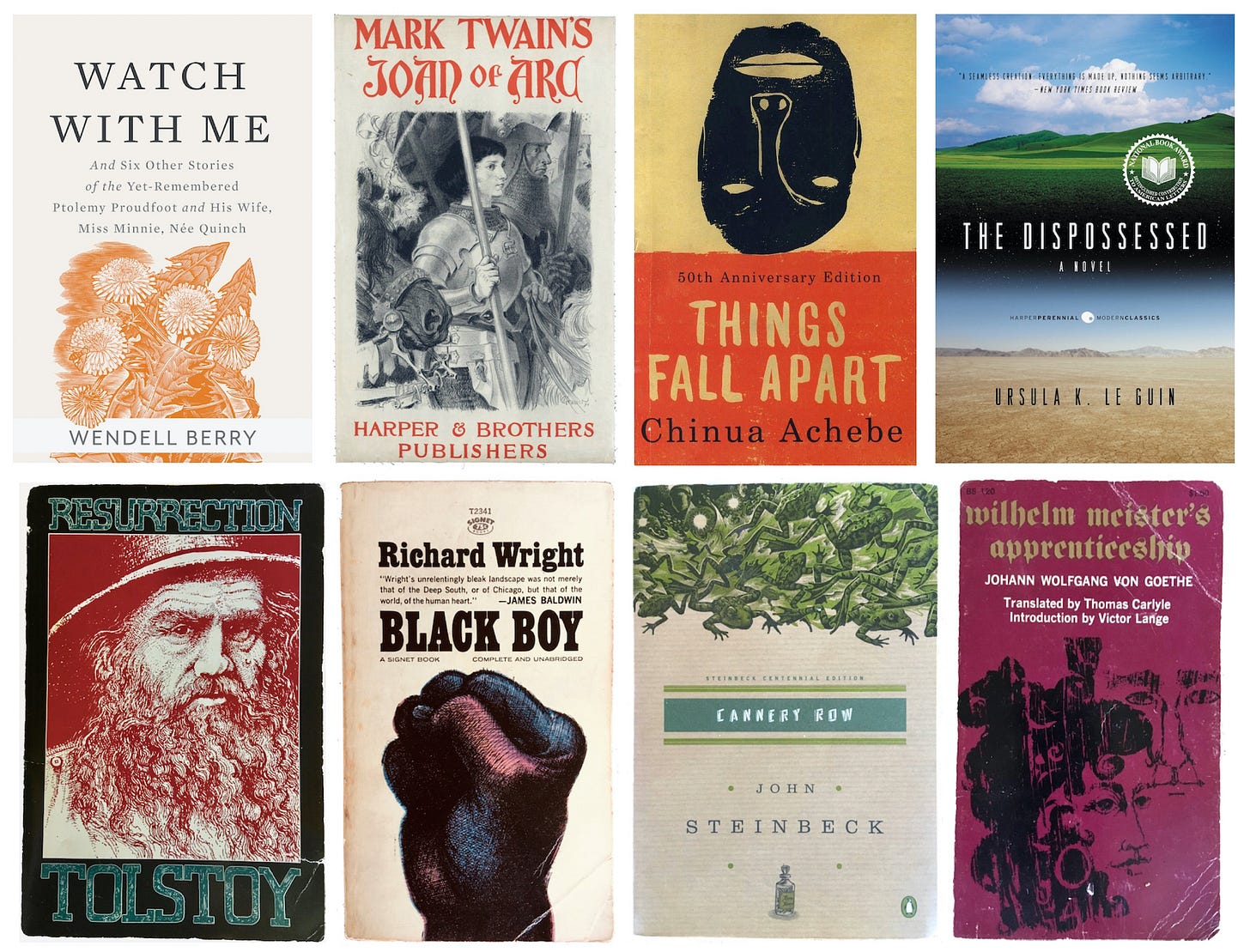


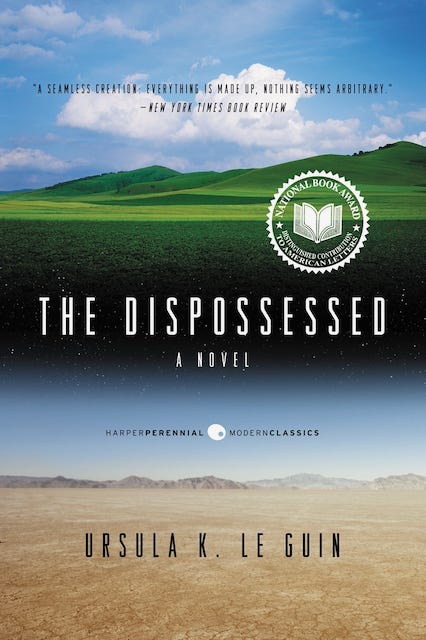

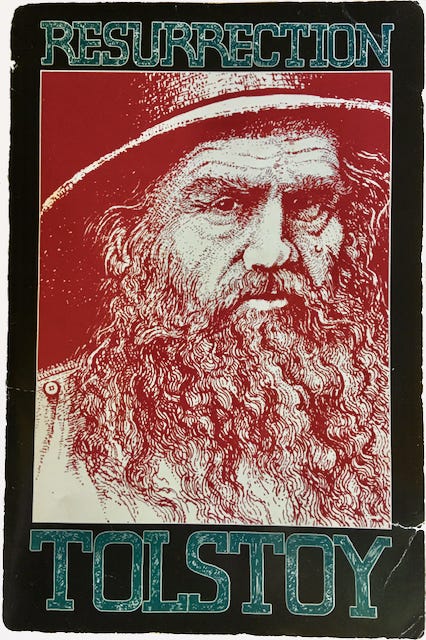

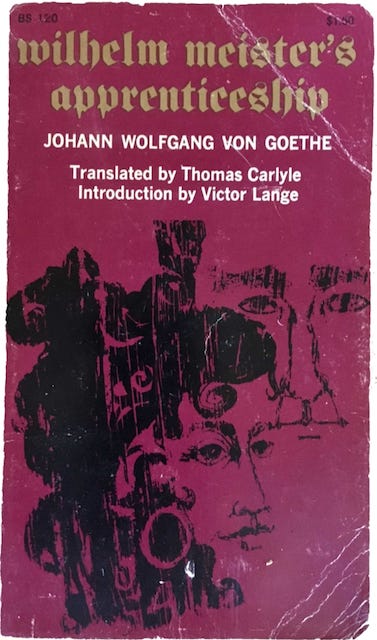
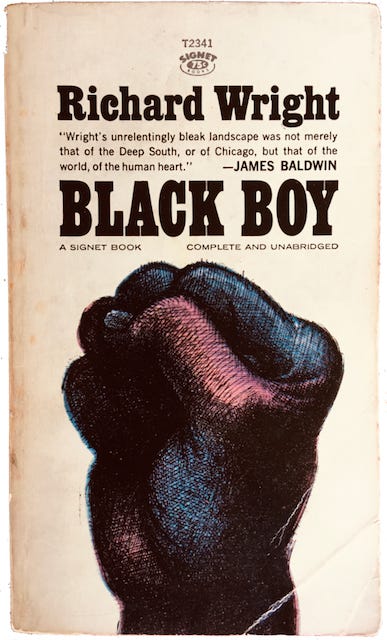
Seth, I'm so glad to discover your site! We met (online) in 2020 when you co-led a course on Social Threefolding and Agriculture, and I've been wanting to be in touch ever since. "But knowing how way leads unto way..." it has taken all this time.
What delights me about this post is how many of the books are already among my favorites or are waiting on my shelf to be read. Watch With Me is a treasure, of course, and I've had the pleasure of hearing Wendell read aloud from it, seeing as how he's a fellow Kentuckian. I've dipped a toe into Wilhelm Meister, though I confess it's not a real page-turner for me. And my wife and I read Cannery Row and are reading The Dispossessed aloud even now. So it's evident that you and I have some similar tastes in reading.
Another fine story is Monsignor Quixote by Graham Greene. It tells about the title character, the typical self-doubting religious man of Greene's fiction, and his boisterous Communist friend, as they go on an adventure together. It is both humorous and touching.
Looking forward to reading more of your posts!
Fred Otto
A book I found amazing, and that I can't help mention in addition, is Rabindranath Tagore's "The Home and the World." It has an incredible social dynamic between the three main characters -- a progressive Indian businessman who is a benefactor to his community, his childhood friend who is a fiery nationalist, and the businessman's wife who is in love with his friend. The story is told from all three points of view and is both powerful and heartbreaking. One of the most helpful things I found about the book though, is the picture it gives into the Indian nationalist movement. It's not a pretty picture, as Tagore was a severe critic of nationalism, and I would have to agree with him. I think nationalism is one of the most dangerous forces in the world today, so it's important to to learn to see it from the inside whenever we can.
Also, I wanted to say that if anyone wants to explore other works by Steinbeck, all of his books are socially insightful, but of course "The Grapes of Wrath" holds a special place in terms of digging deeper into society's systemic problems.